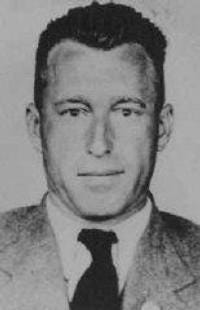Selected to live - in Treblinka
7th October 1942: As they murder hundreds of thousands of Jews, the Nazis employ a small army of slaves to comb through mountains of their possessions
The ‘death camp’ or killing centre of Treblinka operated with relatively few staff considering the vast numbers of people who were murdered within it. The SS staff of 20-30 were assisted by around 120 ‘Trawniki men’ - former Soviet POWs, mainly Ukrainains, who had ‘volunteered’ to work with the Nazis. They had been trained at the SS centre at Trawniki and were used as guards. Around 700 Jewish men were retained as slaves to deal with the dead and their belongings.

After ten new gas chambers were built in September it was capable of killing 1000 people an hour - it would still take a day to ‘process’ a trainload of 6,000 to 7,000 men women and children.

Oscar Strawczynski1 arrived in Treblinka on 5th October 1942 on a transport from the town of Czestochowa.
The women and children were immediately separated from the men and he never saw his mother, his wife Anka or his children, Guta and Abus, again.
He was in the group of men with his elderly father. The Germans asked for skilled craftsmen to step forward - a call that he ignored. However he was recognised by a Jew who was already a prisoner in the camp - a man who knew that he was a skilled tinsmith. Oscar was pulled from the ranks of the new arrivals, without even the time to bid farewell to this father.
From the thousands who arrived daily at Treblinka a minority were retained to work for the Germans. They worked on the burial - later the cremation - of the victims, and on the sorting of the massive quantities of clothes and goods that were arriving daily on the transports.
The group to which I belonged, consisting of several hundred people, reaches the yard and begins working. On the blankets and tablecloths that are spread on the ground are piled all kinds of articles, from imported material and expensive suits to plain rags.
From the suitcases we remove lotions, cosmetics, soaps, matches, medicines. It seems that there is nothing that we do not remove here in quantities - all sorts, from the most expensive tins to the few potatoes that the poor Jews brought with them.
The sorted articles are brought non-stop to the edge of the yard, where they are piled up and up. The suitcases with valuables have a special place; into them are put things made of gold, watches, rings, diamond’s. Wedding rings make up the greatest quantity of valuable articles.
There are also great quantities of foreign exchange, dollar bills and coins, pounds sterling and gold Russian coins. Polish money is gathered into large piles. From time to time some “gold-Jews” come to the yard and take suitcases full of valuables and money to their workshops and leave behind the empty suitcases that they brought with them. These are also filled up within a short time.
The entire yard gives the impression of a market. There is a special place for house-wares and bottles. Among the house-wares there are utensils of the most expensive nickel or aluminium as well as old broken pots.
I work in a group of twenty men. They make us sort packages from the transport from Czechoslovakia. I open a package and find underwear, suits, shoes, lotions, and so on.
I am still new at this work so I am not sure what to throw onto the pile of silk clothing, of partially silk clothing, wool, cotton. One must always be in motion; to rest or sit down is prohibited – one could pay for that dearly.
It was a precarious existence, entirely dependent on the whim of the SS overseers, one of whom he remembered very well.

He walked through the camp with great pleasure and self-confidence. Barry, his big, curly–haired dog, would lazily drag along behind. Lalka would never leave the place without leaving some memento for somebody. There was always some reason to be found.

And even if there were no reason – it made no difference. He was expert at whipping, twenty-five or fifty lashes. He did it with pleasure, without hurrying. He had his own technique for raising the whip and striking it down.
To practice boxing, he would use the heads of Jews, and naturally there was no scarcity of those around. He would grab his victim’s lapel and strike with the other hand. The victim would have to hold his head straight so that Franz could aim well.
To practice boxing, he would use the heads of Jews, and naturally there was no scarcity of those around. He would grab his victim’s lapel and strike with the other hand. The victim would have to hold his head straight so that Franz could aim well. And indeed he did this expertly. The sight of the Jew’s head after a “training session,” of this sort is not difficult to imagine.
Once Lalka was strolling along the platform with a double- barrelled shotgun in his hand and Barry in his wake. He discovered a Jew in front of him, a neighbour of mine from Czestochowa, by the name of Steiner.
Without a second thought, he aimed the gun at the man’s buttocks and fired. Steiner fell amidst cries of pain. Lalka laughed. He approached him, commanded him to get up, pull down his pants, and then glanced at the wound.
The Jew was beside himself with pain. His buttocks were oozing blood from the gashes caused by the lead bullets. But Lalka was not satisfied. He waved his hand and said, “Damn it, the balls haven’t been harmed!”.
He continued his stroll to look for a new victim.




